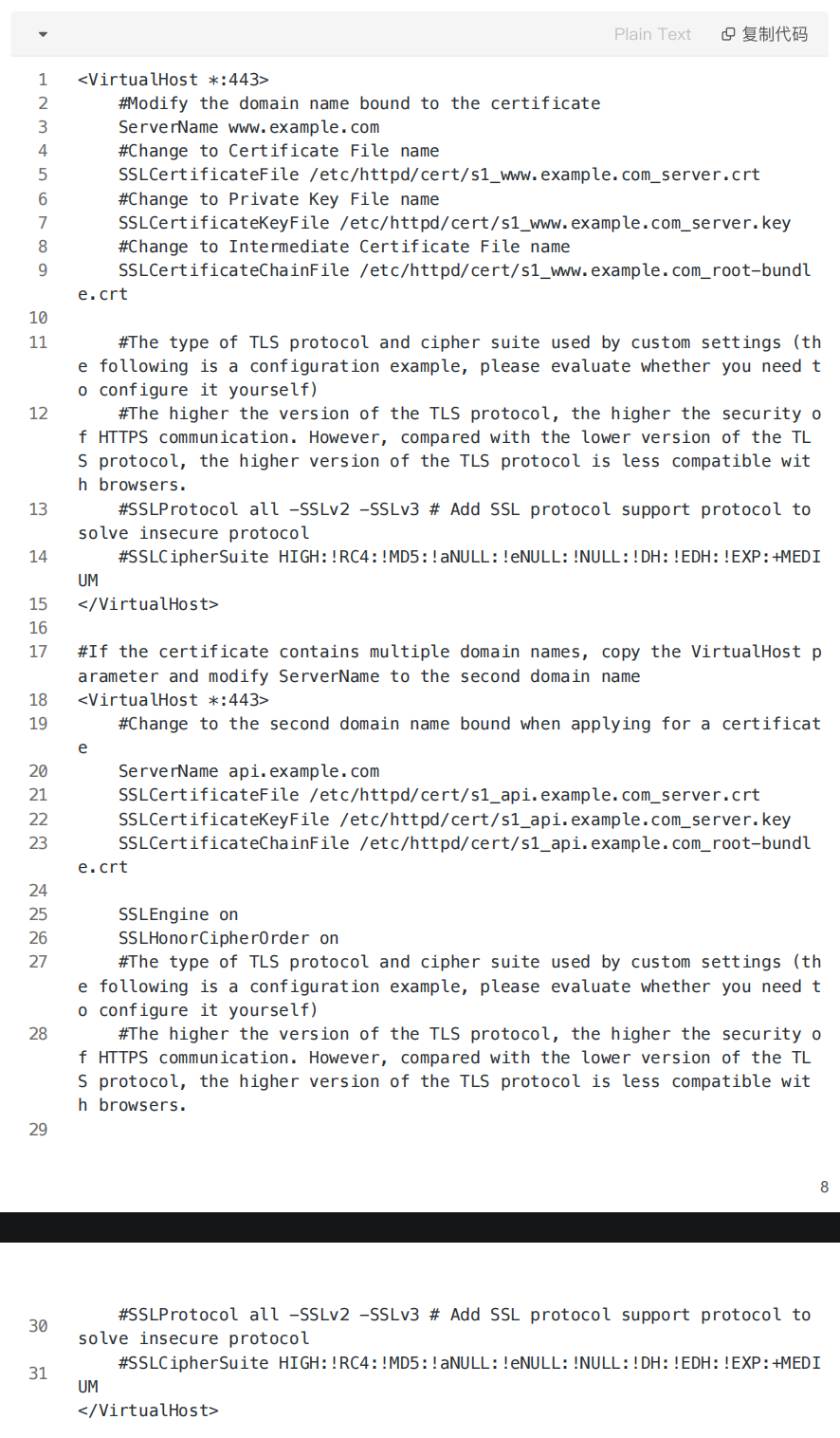1.Download the Apache type SSL certificate from this site and unzip it:

2.Log in to the CentOS7.x system and install the mod_ssl module (skip if installed).

3.Create a certificate directory and upload Root Certificate File, Certificate File, and Private Key File to the directory.

4.Modify the httpd.conf configuration file.

Find line:
LoadModule ssl_module modules/mod_ssl.so
Include conf.modules.d/*.conf
Check if it is commented, if it is, remove the #comment
Notice:
The configuration files that contain the parameters vary based on the operating system and the installation method of Apache. The following list describes the configuration files that contain the parameters:
conf.modules.d/00-ssl.conf: This file contains the LoadModule ssl_module modules/mod_ssl.so parameter.
httpd.conf: This file contains the Include conf.modules.d/*.conf parameter.
http-ssl.conf
If you cannot find the preceding parameters, check whether the mod_ssl.so module is installed on the Apache server. If the module is not installed, you can run the yum install -ymod_ssl command to install the module. After you run the command, you can run the httpd-M | grep 'ssl' command to check whether the mod_ssl.so module is successfully installed on the Apache server.
5.Modify the ssl.conf configuration file.

In the ssl.conf configuration file, locate the following parameters and modify them according to the comments:

6.Restart the Apache service.

Notice:
The server firewall needs to open port 443. If it is hosted on Amazon, Google Cloud and other service providers, you need to log in to the service provider console to open port 443.


















